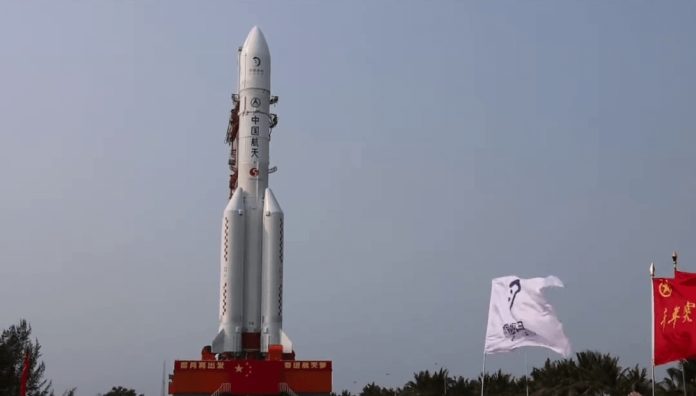BEIJING, May 1 : China on Wednesday announced that it will launch its lunar probe Chang’e-6 on Friday to collect samples from the far side of the moon.
The probe is set to collect samples from the far side of the moon, making this mission the first of its kind in human history, China National Space Administration (CNSA) said in its announcement.
Currently, preparations for the mission are progressing steadily at the Wenchang Space Launch Site in south China’s Hainan Province, and the Long March-5 Y8 carrier rocket will soon be refuelled with propellant, the CNSA said.
As there is a narrow launch window on two consecutive days, with only 50 minutes for each day, the mission’s rocket team has designed a total of 10 trajectories, the CNSA added.
The Wenchang Space Launch Site on Wednesday conducted a final rehearsal for the launch, covering all relevant systems comprehensively, the state-run Xinhua news agency reported.
The site’s meteorological system has strengthened its monitoring and analysis processes to ensure a successful launch.
The Chang’e-6 lunar probe and Long March-5 Y8 carrier rocket combination were transferred vertically to the launch area on Saturday.
The CNSA said earlier that the mission is poised to make breakthroughs in key technologies, such as automatic sample collection, take-off and ascent from the far side of the moon. Meanwhile, the probe will carry out scientific exploration of the landing zone.
The CNSA has announced that scientific instruments from France, Italy and the European Space Agency/Sweden will be onboard the lander of the Chang’e-6 mission and a Pakistani payload on the orbiter.
A major space power, China in the past successfully launched unmanned missions to the moon which included landing a rover. China has also sent a rover to Mars.
Earlier, China announced plans for a manned lunar landing by 2030.
India became the first country to land near the little-explored lunar south pole region last year when its Chandrayaan-3’s lander, carrying the Pragyaan rover successfully landed there. (PTI )


